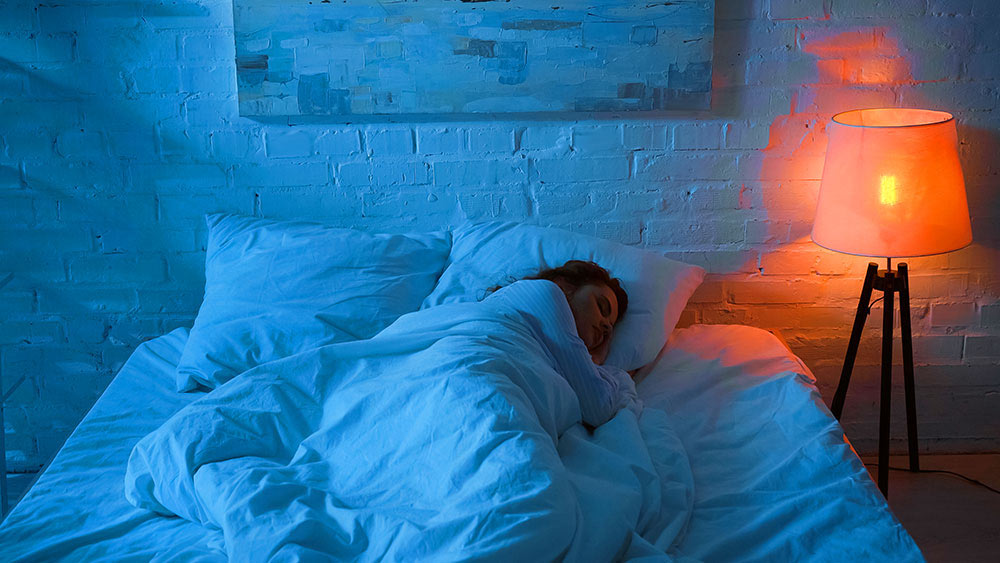Ever felt like a zombie stumbling through the day, groggy and irritable? You’re not alone. Sleep, or the lack thereof, impacts every nook and cranny of our lives. It’s the secret sauce to overall health and longevity. So, why not explore strategies to optimize sleep and unlock its full benefits for lifelong health? The Science …
Ever felt like a zombie stumbling through the day, groggy and irritable? You’re not alone. Sleep, or the lack thereof, impacts every nook and cranny of our lives. It’s the secret sauce to overall health and longevity. So, why not explore strategies to optimize sleep and unlock its full benefits for lifelong health?
The Science of Sleep
First, let’s unravel the mysteries of sleep. It’s not just about closing your eyes and drifting off. Sleep is a complex dance of different stages: light sleep, deep sleep, and REM (rapid eye movement) sleep. Each stage plays a crucial role. Light sleep is your entry point, a transition. Deep sleep is the body’s repair shop, healing and rejuvenating tissues. REM sleep? That’s where dreams happen, and your brain processes memories and emotions.
Quality sleep supports cognitive function, bolsters the immune system, and keeps your metabolism humming. Miss out on these cycles, and it’s like skipping vital maintenance checks for your car – eventually, something’s going to break down.
Benefits of Optimized Sleep
Physical Health
Good sleep is a game-changer for your physical health. It’s like hitting the reset button every night. Quality sleep keeps your heart healthy, helps in weight management, and even staves off diseases. A well-rested body has a better chance of maintaining a healthy weight because sleep influences the hormones that control hunger. Plus, deep sleep allows your heart to slow down, reducing the risk of heart disease.
Mental Health
Your brain loves sleep. It’s during sleep that your mind gets a chance to sort through the day’s events, consolidate memories, and recharge. Proper sleep regulates mood and enhances cognitive performance. Ever notice how everything seems a bit brighter after a good night’s sleep? That’s because adequate rest reduces stress and anxiety, boosting your mental well-being.
Longevity
There’s a direct line connecting good sleep to a long, healthy life. Quality sleep can prevent age-related diseases like Alzheimer’s. It’s a key player in maintaining bodily functions and overall vitality. Think of sleep as a fountain of youth – the better your sleep, the more it contributes to longevity.
Common Sleep Issues
Insomnia
Insomnia, the pesky troublemaker, is more than just an inconvenience. It’s the chronic inability to fall or stay asleep. Causes range from stress and anxiety to poor sleep habits. The impact on health is severe, leading to fatigue, mood swings, and a weakened immune system.
Sleep Apnea
Sleep apnea is a serious condition where breathing repeatedly stops and starts during sleep. It’s often marked by loud snoring and daytime fatigue. This disruption not only affects sleep quality but also puts a strain on your heart and overall health.
Sleep Disruptions
Life throws curveballs that can disrupt sleep – stress, technology use, irregular schedules, you name it. These factors can lead to tossing and turning, breaking the flow of your sleep cycles and leaving you feeling drained.
Strategies for Optimizing Sleep
Establishing a Sleep Routine
Consistency is key. Going to bed and waking up at the same time every day sets your internal clock. A bedtime routine, like reading or taking a warm bath, signals your body it’s time to wind down.
Creating a Sleep-Friendly Environment
Your bedroom should be a sleep sanctuary. Invest in a comfortable mattress, keep the room dark and quiet, and set a cool temperature. These tweaks can make a world of difference.
Lifestyle Adjustments
Your lifestyle choices directly impact sleep quality. Let’s break it down:
Diet
What you eat and drink matters. Caffeine and alcohol can mess with your sleep. Try to avoid heavy meals before bedtime. Instead, opt for sleep-friendly foods like cherries, bananas, and almonds.
Exercise
Regular physical activity promotes better sleep. Aim for at least 30 minutes a day, but try to avoid vigorous exercise close to bedtime.
Stress Management
Stress is a sleep killer. Incorporate relaxation techniques like deep breathing, meditation, or yoga into your routine to keep stress at bay.
Technology and Sleep
Blue light from screens can wreak havoc on your sleep by suppressing melatonin production. Limit screen time an hour before bed. If you must use your devices, consider blue light filters.
Sleep aids like white noise machines or sleep trackers can help improve sleep quality. These tools offer insights into your sleep patterns and help create a more conducive sleep environment.
When to Seek Professional Help
Recognizing Sleep Disorders
If you’ve tried everything and still struggle with sleep, it might be time to seek professional help. Signs of sleep disorders include chronic insomnia, severe snoring, or extreme daytime fatigue.
Consulting Healthcare Providers
Working with healthcare professionals can provide personalized solutions. They can conduct sleep studies and recommend treatments tailored to your needs.
Building Healthy Sleep Habits
Adopt daily habits that support good sleep. Limit naps, avoid heavy meals before bed, and establish a relaxing pre-sleep routine.
Mindfulness and relaxation practices can significantly improve sleep quality. Try incorporating activities like meditation, progressive muscle relaxation, or even journaling before bed.
Conclusion
In a nutshell, optimizing sleep is like giving your body and mind a gift that keeps on giving. From boosting physical and mental health to enhancing longevity, the benefits are endless. So, start implementing these strategies today for a lifetime of better sleep and health.
Curious to learn more about optimizing your sleep for lifelong health? Dive deeper into our resources or reach out to Coraeon for personalized health and wellness support. Sweet dreams!








